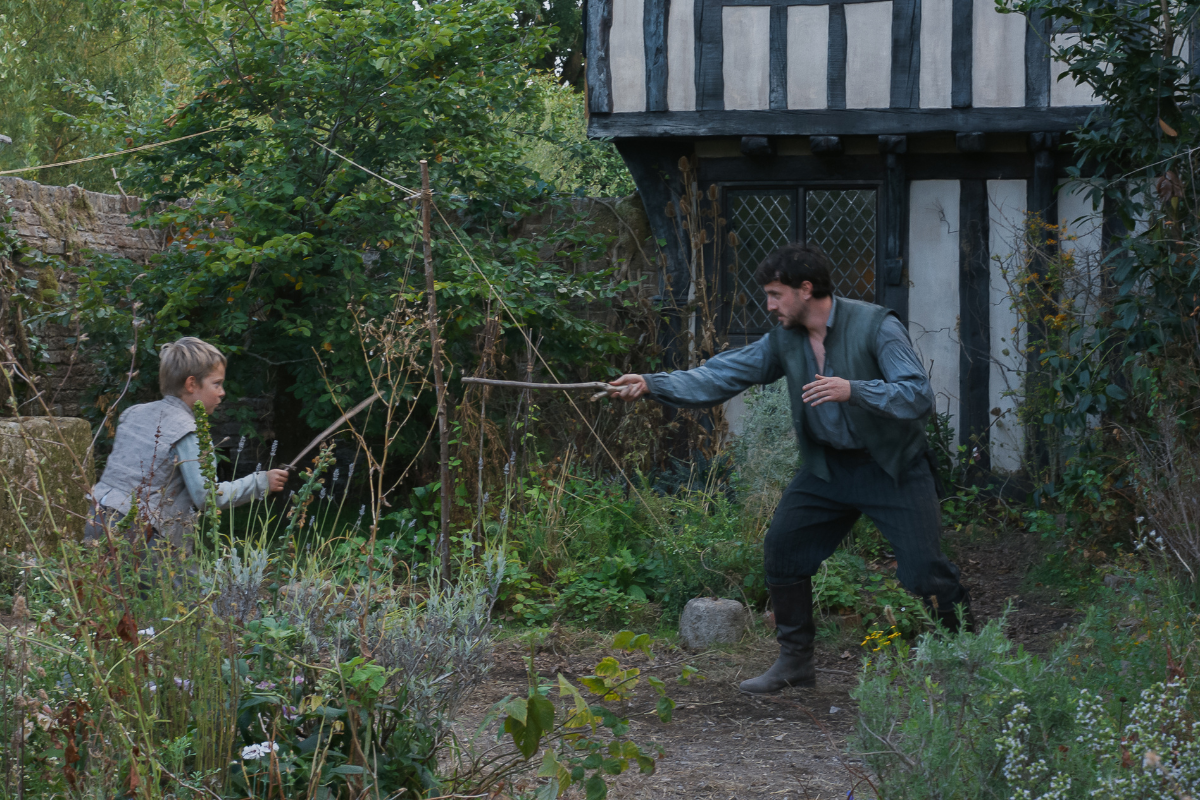How to Write Better Sex Scenes
Representing intimacy in our stories requires finesse and care. Filmmaker and screenwriter Michele Meek Ph.D., TEDx speaker of “Why We’re Confused About Consent—Rewriting Our Stories of Seduction,” shares advice on how to write better sex scenes.
During a scene in The Graduate, Ben (Dustin Hoffman) puts his hand on Mrs. Robinson’s (Anne Bancroft’s) breast. The moment wasn’t in the script, and Bancroft was not told in advance about the action. Director Mike Nichols had suggested it privately to Hoffman as a way to surprise Bancroft. It did.
On most sets today, that wouldn’t fly. Film and television sets featuring nudity and simulated sex now often incorporate intimacy coordinators to act as creative partners with directors and actors, facilitate open and clear communication, and assist with safety. Intimacy Coordinator and Founder of Intimacy Professionals Association Amanda Blumenthal says her job is to “take everything that was unspoken before and make it really explicit about this is what we're doing.” Similarly, John Bucher author of A Best Practice Guide to Sex and Storytelling explains it in terms of the three Cs—communication, consent, and choreography.
Still, cast and crew can be surprisingly shy about discussing the intimate scenes they’re creating. “I find a lot of directors and actors are super embarrassed to even talk about it. It's like—you do realize what we're doing here?” says Blumenthal.
As writers, you have a great deal to contribute to how these scenes are portrayed. So, instead of just “CUT TO: sex,” here’s how to use that power wisely and ensure you write better sex scenes.
Don’t Treat Sex as the “Pause” Button
As the writer, you should know the purpose of every scene—including moments of intimacy. But as Bucher says, “Sex scenes often become where the narrative just gets put on pause.”
Instead, just as in any other moment in the story, writers should be considering the motivations of the characters and the purpose of the scene to the larger plot. As Bucher notes, we have long since passed a time when movies include sex scenes merely to titillate. Viewers looking to indulge fantasies through portrayals of explicit sex can find it in abundance on the Internet. So, in a film or TV episode, the purpose is typically more nuanced. Sex scenes in movies and TV can be arousing, but they should fit the narrative—driving the story forward; illuminating characters’ traits, desires, and fears; evoking emotion; and creating meaning.
In other words, your story doesn’t actually pause during an intimate scene, so tackle both the significance of this scene for your characters and the plot.
Choreograph the Scene
Someone is going to write the nitty-gritty details of this scene, so shouldn’t it be you—the writer? Sure, the director ultimately might have a different interpretation, but you do a disservice to your characters and your story by leaving out the specific actions within a sex scene.
However, as Blumenthal explains, scenes of intimacy are often incredibly vague in scripts. In breaking down scripts, she often comes across a scene that simply states that the characters kiss and then have sex without any clear idea on what that might look like. And what takes up only an eighth of a page in the screenplay can wind up being a two-minute scene.
Both Blumenthal and Bucher suggest that more details in sex scenes in screenplays would help a writer’s original vision come through. Although some directors arrive with clear ideas about how an intimate scene will be choreographed, others feel unsure, leaving it up to their actors to judge how their characters would behave. Blumenthal says that having little to go on can cause significant problems on set. Sometimes, she notes, casting occurs before those scenes have been fully elaborated, so talent might be unaware of the levels of simulated sex or nudity. And not surprisingly, when people are put on the spot to make up a sex scene on the fly, they tend to fall back on familiar (read: unimaginative) depictions.
What kind of details might you include? Blumenthal’s advice is to describe both when and how clothing comes off and to be explicit with sex positions, behavior, and actions in the scene. Sex can mean a lot of different things to different people, so clarity here will help better guide directors, actors, and other crew. Plus, as Bucher states, these scenes offer tremendous potential for subtext and symbolism.
Of course, there’s no doubt that COVID-19 has shifted the possibilities of actions within intimate scenes. As Blumenthal explains, kissing has been the first thing to go on some sets—and some are opting for less face-to-face sex. Some are simply quarantining their cast and crew to keep things as normal as possible. In any case, seeing how long development might take, hopefully COVID-19 will be a distant memory by the time your screenplay hits the screen.
Sex Doesn’t Have to Be Silent
When asked what she would like to see more of within scenes of intimacy, Blumenthal suggests more talking about the sex. In particular, she would like to see more conversations about sexual acts, birth control, and pleasure. Such dialogue could take place before or even during scenes of intimacy.
Without such conversations, movies and TV often create the misguided illusion that orgasm is easily and mutually attained, and that birth control doesn’t warrant a discussion. Furthermore, in an era where affirmative consent is prioritized, the guiding principle is that individuals should be obtaining clear and verbal consent for sexual acts. So, think about if and how you want your characters to communicate openly about consent.
In other words, sex doesn’t need to be silent—in fact, when you start thinking more closely about your characters’ personalities, you might discover that dialogue offers more potential than you think. It could be that the dialogue offers some opportunity for awkwardness (think Superbad or Booksmart). Or the dialogue might show how your characters discuss pleasure, because, in fact, greater communication during sex in the real world is linked with greater sexual pleasure, according to a study published in the Journal of Sex and Marital Therapy.
Diversify Your Sex Scenes
“We live in an age of extremely creative sexuality,” as Bucher puts it. And yes, scientists have studied that, too. So, let’s start depicting more of that variety on screen.
Of course, as Blumenthal states, we do have to be careful about representing the sexuality of people with identities and preferences that are not our own. But just as you might do research about a time period you weren’t alive for or a region that you never lived in, you can research sexualities of communities that you’re not part of. Now, don’t get me wrong, what we need are more stories by these communities—for example more films and TV about transgender sexuality by transgender individuals starring transgender actors. So, if you do fall in any minoritized sexual category, definitely get your story out there. But if not, you still can incorporate these stories into your scripts by working with experts in the field (and, no, your gay friend doesn’t count). Writers don’t only write what they know—if they did, how would a post-apocalyptic film ever get written? The key is that you should approach the topic with some humility and acknowledgement that you are likely not an expert and still have something to learn.
This might take some bravery on the part of writers. Bucher says, “We need to be writing stories that challenge our ways of thinking. We need to be writing stories that scare us to death to tell these stories because that it is what our job is. The writer communicates human experience. And there are so many aspects of the human experience that get so little screen time.”
For example, sex scenes often show women achieving orgasm through penetration alone, while it turns out only 18 percent of women climax through intercourse alone. Movies rarely depict masturbation despite the fact that the majority of individuals masturbate. And committed relationships don’t necessarily present the death knell to sexual satisfaction we often see in movies—in fact, some studies suggest sexual satisfaction might be linked to marital happiness. So, don’t assume because you’ve seen it in a movie that’s how it works. And when you’re writing your own sex scenes, consider how others are going to take your representations to heart.
By doing a bit of research, you’ll be more informed and prepared to create more realistic and unique sexual encounters. And who knows while you’re at it, maybe you’ll do more than improve your writing. Maybe you’ll improve your sex life too.
Prepping Your Screenplay to Win Competitions Intensive
Michele Meek, Ph.D. is an award-winning writer, filmmaker, and professor. She published the books Consent Culture and Teen Films: Adolescent Sexuality in US Movies in 2023 and Independent Female Filmmakers: A Chronicle Through Interviews, Profiles, and Manifestos in 2019, and she has written and directed numerous films including the forthcoming short film Bay Creek Tennis Camp. For more information about her books, articles, and films, visit her website at www.michelemeek.com.







